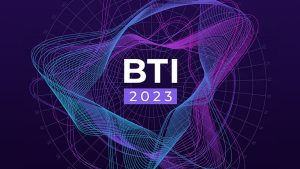
Rachel Eyres, Client Director, Expleo
Rachel Eyres discusses the incentive for energy suppliers to fast-track their migration of first-generation smart meters to Data Communications Company (DCC) infrastructure. There’s no time like the present…
The government’s decision to extend its 2020 deadline for a smart meter in every UK household will release some of the growing time pressure on suppliers. However, the government clearly hopes that market forces will provide enough incentive and urgency to compel suppliers into accelerating the rollout of smart meters, long before the new target of 2024.
Top on the list for many will be the migration of first-generation smart meters onto the DCC infrastructure – which became possible earlier this summer. Whether SMETS1 meters are active or dormant (those gained on customer churn), suppliers will need to update functionality for SMETS1, which will mean changes to their internal back office systems and operations.
Those suppliers that can achieve the migration quickly and smoothly will improve their reputation in the eyes of current and potential customers. There is a real opportunity for first movers in this space. The problem is that many suppliers are starting from scratch, without the right people and the right plan. The uncertainty around timings has discouraged some bigger players from prioritising SMETS1, while many smaller suppliers might lack the knowledge, operating systems or resources inhouse to respond quickly. At least suppliers can now make plans with certainty.
Set off from base camp, not ground zero
Understanding which business processes will be impacted and what needs to change will demand an intense period of additional work. Suppliers must navigate how best to comply with DCC, maintain relations with customers, while building systems that ensure meters work without a glitch, once migrated to DCC. This is a huge undertaking and should not be underestimated.
Expleo can help. Our Smart Services “pods” (multi-skilled teams) are ready to integrate within your business to inject valuable momentum.
Here are our 6 immediate next steps for Energy Suppliers:
- Identify and classify your SMETS1 estate into active and dormant meters in order to determine when your relevant obligations start.
- Ensure DCC has the right contact for sending dormant migration notifications. DCC will put in place extra support for suppliers with more than 1000 dormant meters.
- Start forecasting for SMETS1 migration.
- Carry out an impact assessment on business processes to identify what changes are required to cater for SMETS1.
- Upgrade your adapter system to a DUIS v3 compatible version.
- Develop a migration plan for active devices.
Hit the ground running
Instead of learning through mistakes and recruiting large teams of new temporary employees, our supplier impact assessment will help you to quickly understand what changes are required to support SMETS1 migration. We can forecast the turnaround for active meters, providing a proposal for the future support you will need, and a cost estimate for the overall migration, including the impact on pre-pay meters.
Next, our migration planning and implementation offers a managed service that takes the stress away, providing energy suppliers with a roadmap for SMETS1 migration while managing the activities you would need to undertake during the migration. Pods include project management, business analysis, testing and migration support.
You’ll gain a migration plan that factors all of the current knowledge provided by DCC and also gained from our experience of working with other suppliers. We’re able to remove the need for inevitable upfront queries and fact-finding. The other typical cause of delay is that all the different teams are on a steep learning curve at the same time. With an integrated team, everybody knows their responsibilities and how the whole jigsaw fits together.
The government’s aim is “to give certainty to the whole sector to invest and plan, ahead of and beyond 2020”. This seems a pragmatic decision, especially given the growing trepidation among suppliers about meeting the cut-off point.
Still, there’s no time like the present. Our Smart Services team is primed to help you to plan and implement strategic changes in 2020 and beyond. Contact us today to find out more.





